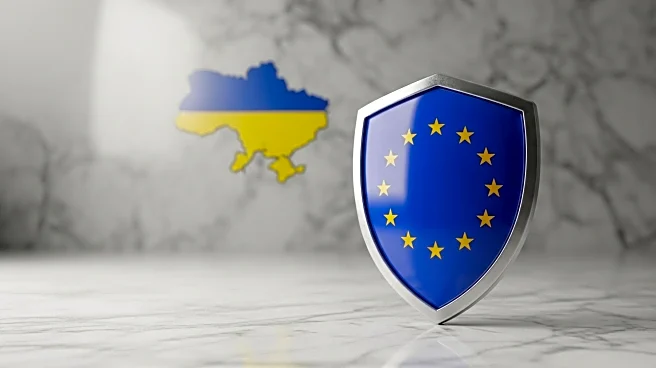What's Happening?
European defense ministers have pledged to increase support for Ukraine following a Russian air assault on Kyiv that resulted in 23 fatalities and significant damage to a European diplomatic compound. The ministers condemned Russia's actions and discussed measures such as seizing frozen assets, imposing further sanctions, and bolstering Ukraine's military capabilities. The deployment of European troops in Ukraine was also considered to ensure security and monitor a peace process, as efforts by the U.S. to broker peace between Ukraine and Russia appear stalled. A coalition of 30 countries, including European nations, Japan, and Australia, has committed to supporting this initiative.
Why It's Important?
The European response to the Russian strike on Kyiv underscores the escalating tensions and the international community's commitment to supporting Ukraine. The increased pressure on Russia through sanctions and military support for Ukraine could significantly impact the geopolitical landscape, potentially leading to further isolation of Russia. The involvement of multiple countries in supporting Ukraine highlights the global stakes in the conflict, with implications for international security and diplomatic relations. The situation also places a burden on European nations to take a leading role in ensuring Ukraine's security, as the U.S. has ruled out sending troops.
What's Next?
The U.N. Security Council has scheduled an emergency meeting to address the airstrikes against Ukraine, indicating ongoing international diplomatic efforts to resolve the conflict. European leaders are expected to continue discussions on increasing sanctions and defense supplies to Ukraine. The European Commission President is touring EU nations bordering Russia to assess security measures and support for Ukraine. The U.S. has approved a significant arms sale to Ukraine, which may further bolster its defense capabilities.











